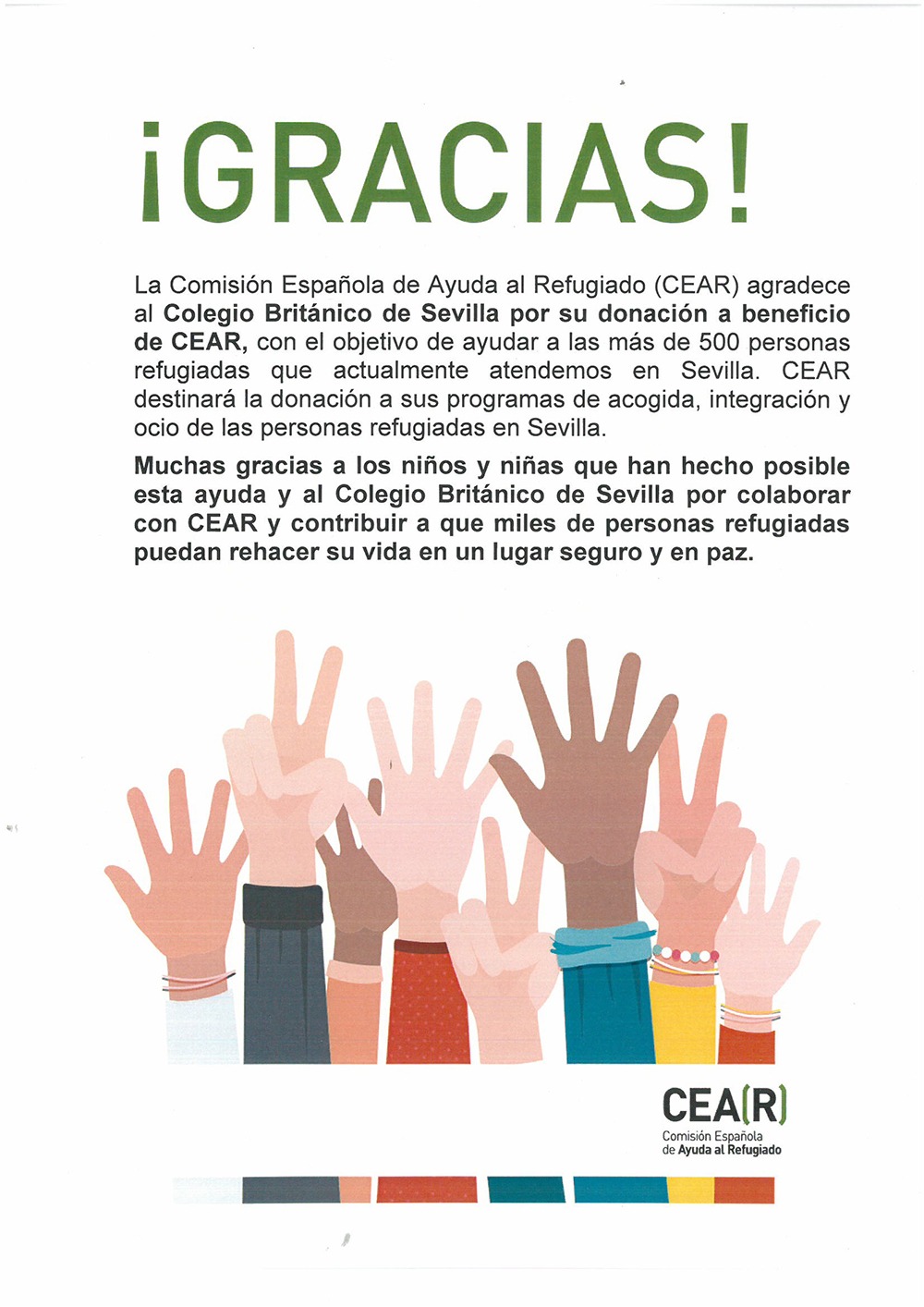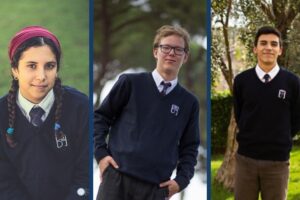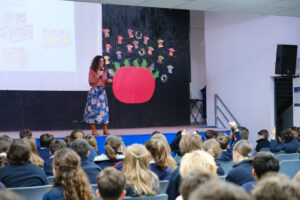Semana del refugiado en CBS 2018 – Refugee Week at CBS 2018
Durante la semana del 2 al 6 de abril hemos celebrado la semana del Refugiado en CBS. En ella, los alumnos han realizado diferentes actividades organizadas por sus profesores con el objetivo de sensibilizarse con la situación de estas personas.
Cada clase se ha enfocado en un país:
- EYFS – Africa
- KS1 – Venezuela
- Year 3 – Iran
- Year 4 – Afghanistan
- Year 5 – Ivory Coast
- Year 6 – Sudan
Han realizado las siguientes actividades, de las cuales les mostraremos fotos a continuación:
- Manualidades típicas del país elegido.
- Música y baile del país elegido.
- Escritura creativa.
- Concienciación sobre el significado de ser refugiado, los viajes de los refugiados, los campos de refugiados y la integración en un país nuevo.
- Refugee check-point challenge en grupos de diferentes edades.
- Una persona en situación de refugio de la organización CEAR ha visitado nuestro Centro para responder a todas las preguntas que tenían nuestros alumnos.
- Cuentacuentos.
A los niños les encantó conocer a Kone, un joven refugiado de África. Estaban emocionados por tener la oportunidad de escuchar su experiencia y hacerle preguntas. Estuvieron particularmente interesados con su entusiasmo por correr y que actualmente está ganando muchas carreras a nivel nacional y tratando de progresar más con esto, sueña con poder participar en los Juegos Olímpicos.
Queremos daros las gracias a todos los padres y madres de primaria que habéis venido al Colegio el pasado viernes a colaborar con nuestros alumnos para recaudar fondos para la organización de Refugiados CEAR con la que el colegio colabora y que nos ha guiado para realizar estas actividades. Muchas gracias también a nuestros alumnos por donar los juguetes y libros que tenían en casa y que ya no usaban.
Estamos encantados con este proyecto. Los niños han demostrado mucha madurez y curiosidad por los temas discutidos y han convertido esta semana en un éxito. No solo han recaudado dinero para donar a CEAR, sino que también han ayudado a concienciarnos a todos sobre la situación de los refugiados, tanto a nivel individual, familias y al conjunto del colegio.
¡Gracias a todos por ser partícipes en este proyecto tan maravilloso!

We have worked with CEAR (https://www.cear.es/) before and as a school we wanted to support and raise awareness for their work that they do everyday to try and better the lives of refugees. CEAR gave us advice about what we should include in the week and how we might go about it to make it child friendly, but also an educational success that would have an impact on the children.
We used many books to help us gain ideas on how we were going to structure the week and help the children to understand the refugee crisis using more child friendly resources. One book in particular helped us a lot `The journey` with inspiring us to think of lesson ideas and helping the children to make sense of what they were learning.
On Monday morning we arrived back from Semana Santa with our plan ready to teach the children. However, none of us knew the reaction that the children would have towards such a sensitive issue.
We introduced the topic with story books and videos about the lives of refugees, looking at the illustrations and asking questions. The children were asked to bring in a backpack with things they would like to take if they had to go on a journey. After learning about the difficult and long journeys some refugees have to do they reviewed their choices and included items such as warm, waterproof clothes, photos of their family, water bottle etc.
Daily, the children built up a timeline of the pressures that many refugees face starting with their life in their home country, the journey to safety and finally integrating into a new country. The children thought about how these children and families might feel depending on their individual circumstance and wrote poems and stories.
We also organised many activities including songs and dances based on peace, artwork related to the country the children had been focusing on and lastly the children took part in a physical refugee ‘checkpoint’ challenge. The ‘checkpoint’ challenge was a great success that the children really enjoyed. The children took part in small mixed age groups and they had to work as a team to build a shelter, carry water, find food, build a bridge and go through passport control.
The week ended with a fantastic assembly celebrating all the learning the children had done. The parents and children had the opportunity to buy their crafts and donated toys and books. The money raised will go to CEAR to help support refugees in Spain.
The children enjoyed meeting Kone this morning, a young refugee from Africa. They were excited to have the opportunity to listen to his experience and to ask him questions. They were particularly interested with his enthusiasm with running and that he is currently winning many races at a National level and trying to progress further with this, with dreams of entering the Olympics, like Mo Farah, who the children have also enjoyed learning about this week.
The children have all showed so much maturity and curiosity towards the issues discussed and have made this week the success that it has been. Not only have the children raised money for this amazing charity but we have also raised awareness of the refugee situation as well as individually and as school learning about this together.
Thank you all for being part of this wonderful project!
A million refugees arrived in Europe this year, says Alexander Betts, and «our response, frankly, has been pathetic.» Betts studies forced migration, the impossible choice for families between the camps, urban poverty and dangerous illegal journeys to safety. In this insightful talk, he offers four ways to change the way we treat refugees, so they can make an immediate contribution to their new homes. «There’s nothing inevitable about refugees being a cost,» Betts says. «They’re human beings with skills, talents, aspirations, with the ability to make contributions — if we let them.»
Our refugee system is failing. Here’s how we can fix it


